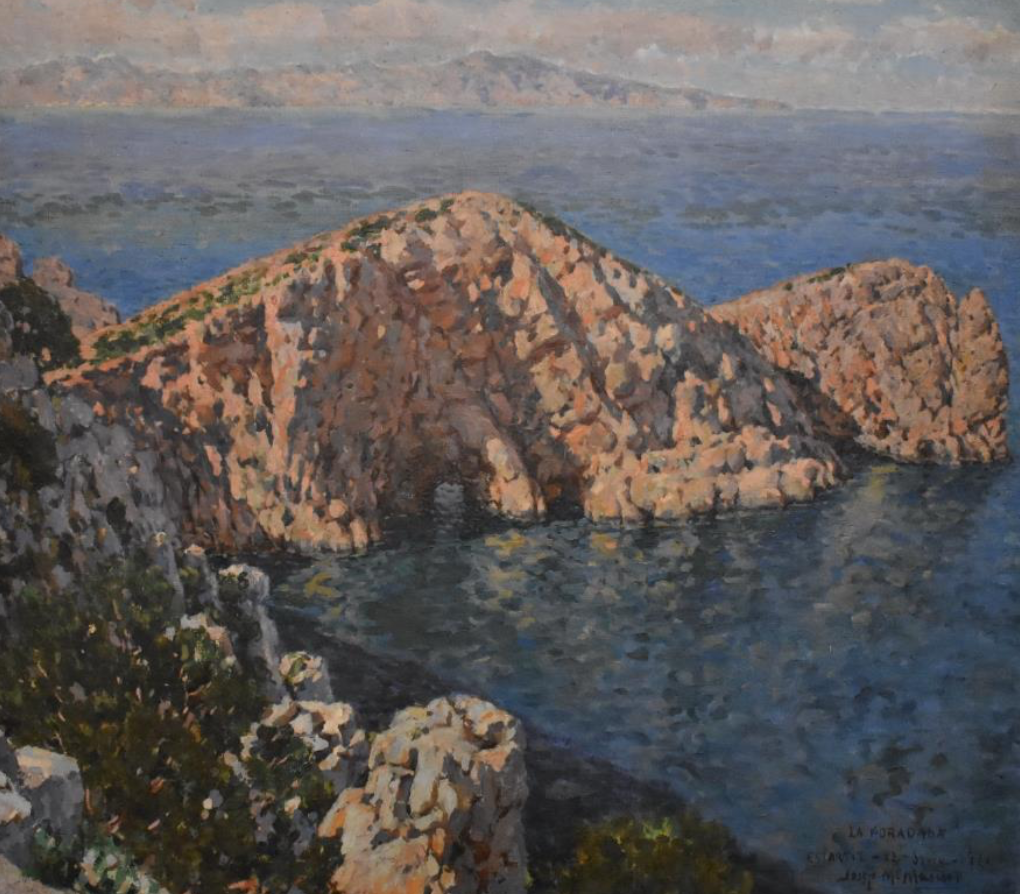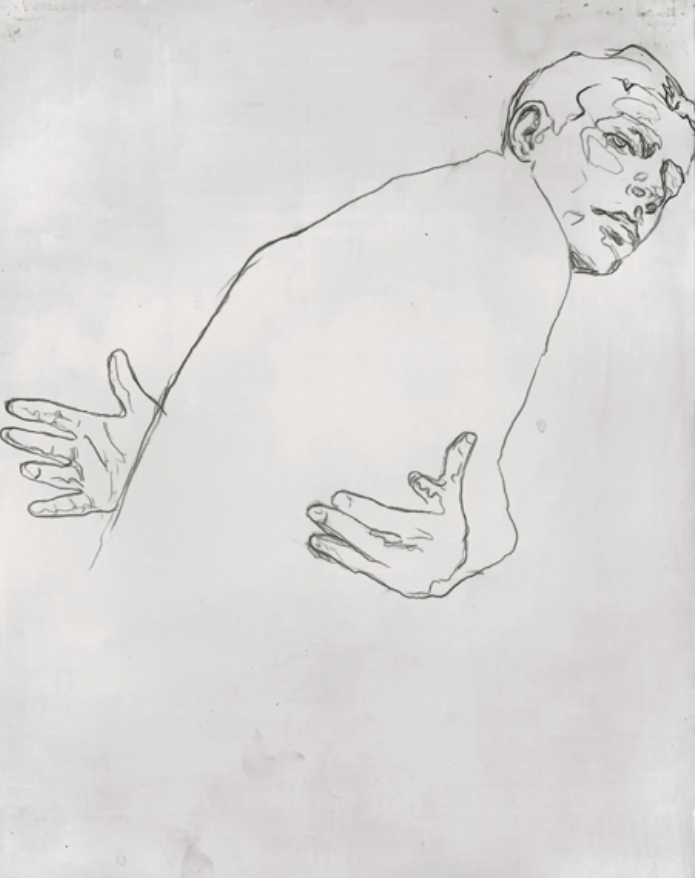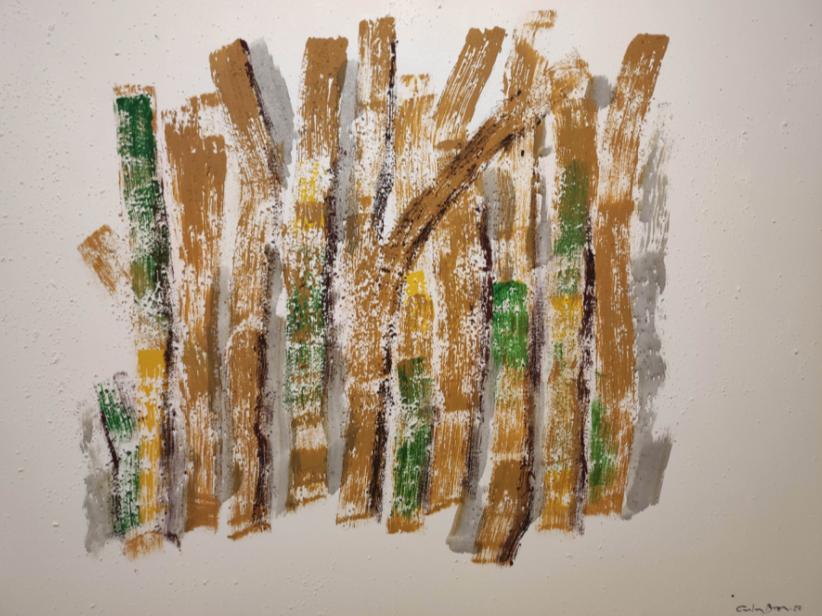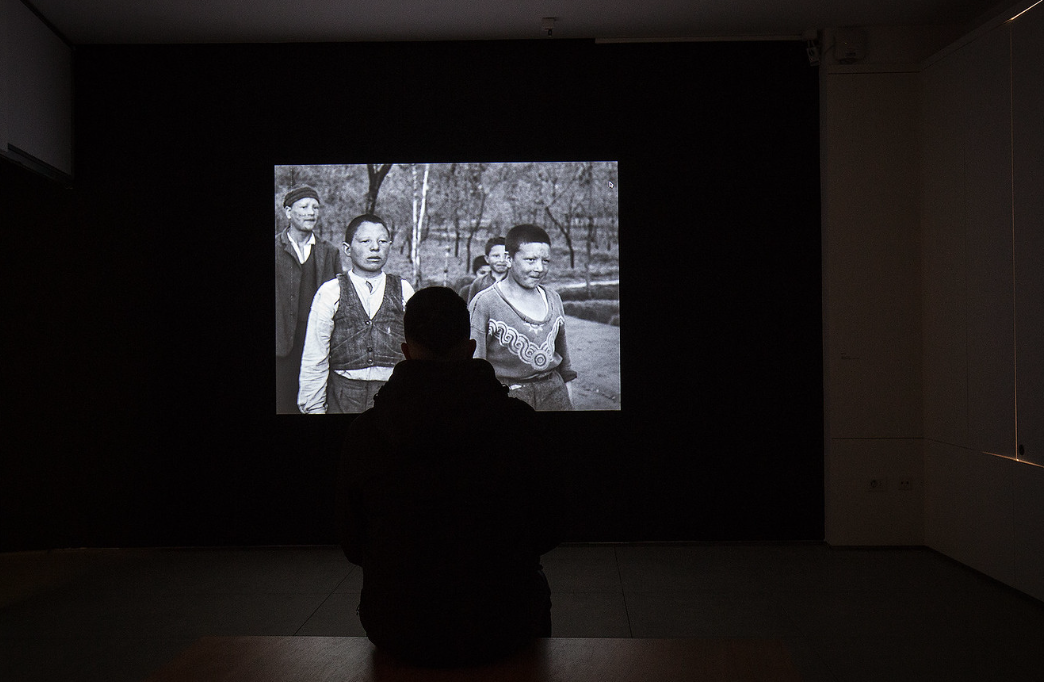news
ElBulli reopens its doors on June 15, converted into a museum
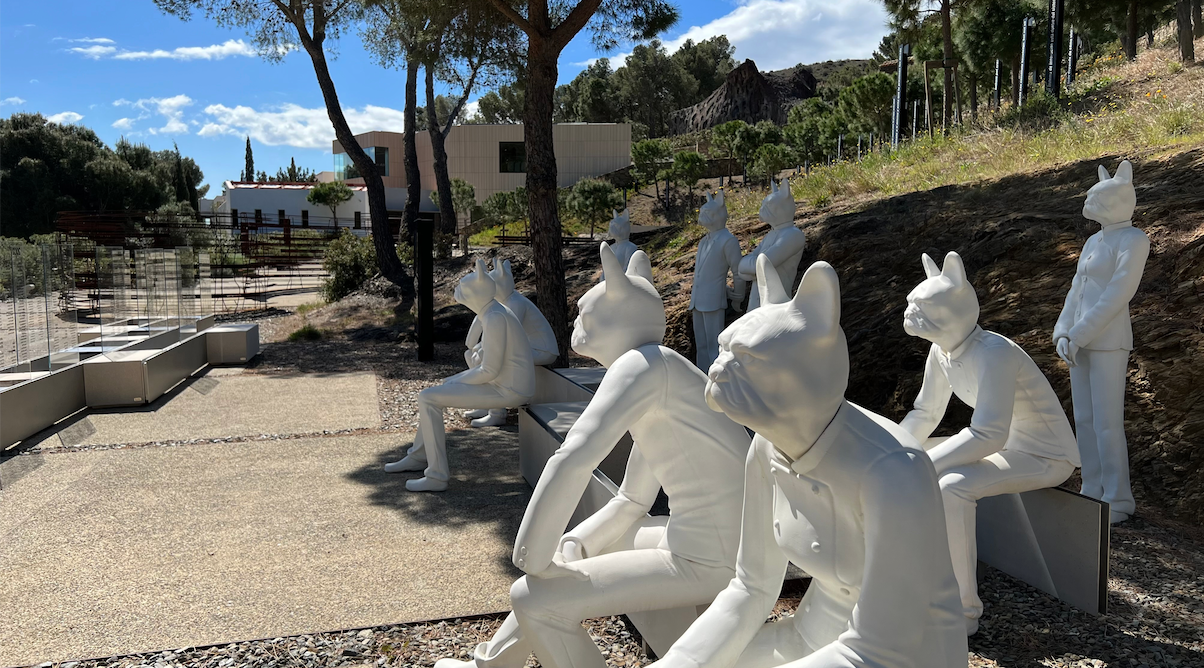
Twelve years after serving the last meal, elBulli will reopen its doors on June 15, converted into a museum. The stoves of what has been considered for years the best restaurant in the world will not be lit again, but it will be possible to visit the kitchen as part of the itinerary through the facilities of the famous establishment, and emblematic areas such as the dining room or the terrace ElBulli1846 was born to maintain and claim the legacy of a restaurant that changed the paradigm of gastronomy. It will be open for three months, until September 16, and for the rest of the year it will continue to function as a research center. Tickets to see the conversion, a pioneering experience in the world, can be compared from Monday.
With an investment of 11 million euros, the renovation and adaptation works of the Cala Montjoi space, in Roses (Alt Empordà), increase the surface area of the original elBulli by 30%, up to 4,000 square meters . In addition to safeguarding the restaurant's legacy, the museum aims to promote innovation and generate quality content for restaurant education and self-learning.
In the first season of reopening, which chef Ferran Adrià and the director of elBulliFoundation, Lluís García, see as a period of "learning and experimentation", they estimate that around 200 people can visit the equipment at the same time, in a visit that it is estimated to last about two and a half hours.
For the creative team, elBulli1846 is a "closing of the circle" of the restaurant, which will interest not only gourmets, but the public moved by knowledge and innovation. Adrià believes that there will be two types of audience, former diners who want to return to a space to "make memories" and "get excited" and others who will visit it for the first time and discover "a world they have heard of but didn't know". "We want knowledge to be eaten here," says the chef.
About seventy outdoor and indoor installations
In total there are 69 artistic, conceptual and audiovisual installations, 13 exterior and 56 interior, which can be followed with an audio guide in four languages -Catalan, Spanish, English and French-, which will be included in the price of the entrance Tickets will cost 27.5 euros (groups such as retirees, students, young people, people with disabilities and citizens of Roses will have tickets at a reduced price of 20.5 euros). The tickets will include parking in Roses and the transfer from the village to Cala Montjoi, a route that will be taken by bus. The museum will open from Monday to Saturday.
The itinerary for elBulli1846 - a figure that refers to the number of recipes that were served and the date of birth of August Escoffier, father of modern cuisine - is about gastronomic innovation. The visitor will start on the outside of the premises, where he will find several installations that introduce and challenge the public on issues related to cooking and its methodology. Among others, drawings made by Ferran Adrià with paint and sticks on old restaurant invoices are on display, asking questions about the origin of the cuisine, divided into two eras: the Paleolithic and the Neolithic.
The space also includes reflections on the elements involved in the cooking process, as well as structures for recipes or a systemic diagram on gastronomy. Predictably, one of the most photogenic areas of elBulli1846 is a tribute to the "Bullini" generations, made with statues with French bulldog heads - an iconic image of the restaurant - and where the names and surnames of the various professionals linked to the equipment throughout history. The outdoor tour ends at the Bullipèdia library, which incorporates the twenty volumes of the collection published so far.
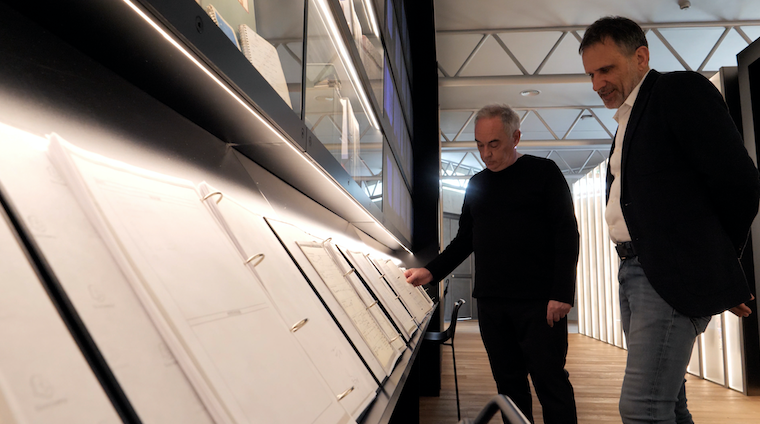
The kitchen, the dining room and the terrace, emblematic spaces
The interior 'tour' claims some of the most popularly recognized spaces. Thus, the visitor will pass through the terrace, where he can sit at the coveted table 25, in an area that pays tribute to well-known faces of elBulli such as its founder, Marketta Schilling, who named the restaurant after her passion by the French bulldogs; and Juli Soler, Ferran Adrià and Albert Adrià, who turned the restaurant into the mecca of contemporary gastronomy.
The dining room, which remains as it was, places plates of food on the tables and half-full glasses and glasses, as if the audience burst into the room in the middle of the service. The main wall is full of figures that seek to demonstrate the complexity of its operation: how many cooks worked there or the number of cutlery they had. A short film starring gourmets Bob Noto and Antonella Fassio tasting a menu is also shown.
In the kitchen, the creative team wanted to deepen the understanding of the system of planning, organization and operation of the gastronomic space. For this reason, there is a sample of the thirty dishes that made up the menu, images of elBulli's gastronomic evolution, the management of reservations and the molds used. In the background, a four-hour film is projected in real time inside the kitchen during a service. The popular bull head continues to preside over the main board.
Curiosities such as payslips, letters and historical photos
In the various corridors there are display cases with curious documents from the history of the space, such as the first payslips of the workers, some of the most emblematic letters or a chronological collection with 3,612 photographs of the history of the restaurant since its birth in 1961 , until the end of his career, fifty years later. The more properly expository part addresses the relations between elBulli's gastronomy and other disciplines, such as journalism, the world of publishing, fashion and art.
Thus, dozens of covers featuring the restaurant during its more than two decades of history or actual diagrams and maps that were used to draw up the menu are shown. Some of the 160 original notebooks of the creative processes of dishes and part of the 15,000 cards, notes and graphics have also been reproduced so that they can be consulted freely during the visit. Uniforms, distinctions, accreditations for congresses, evidence of participation in international competitions such as Documenta XII Kassel in 2007 or kitchen utensils are on display.
The itinerary ends in a multipurpose space called elBulliDNA, which shows through videos the projects developed by the foundation since 2011 in a cave that imitates the rock of Cap de Creus, with finishes by one of RCR's architects.
A warehouse converted into a pantry-chapel
One of the parts that is not on the tour, but that has also been modified since the closure of elBulli, is the warehouse, which the artist Antoni Miralda has converted into a pantry-chapel dedicated to Sant Stomak.
The space includes an altar for offerings and consecration of wine, showcases with personalized tin drinks and dozens of caganers. As a soundtrack, Miralda incorporates the sound of the waves of Cala Montjoi, the imitation of the noise of the taste buds and a prayer.





